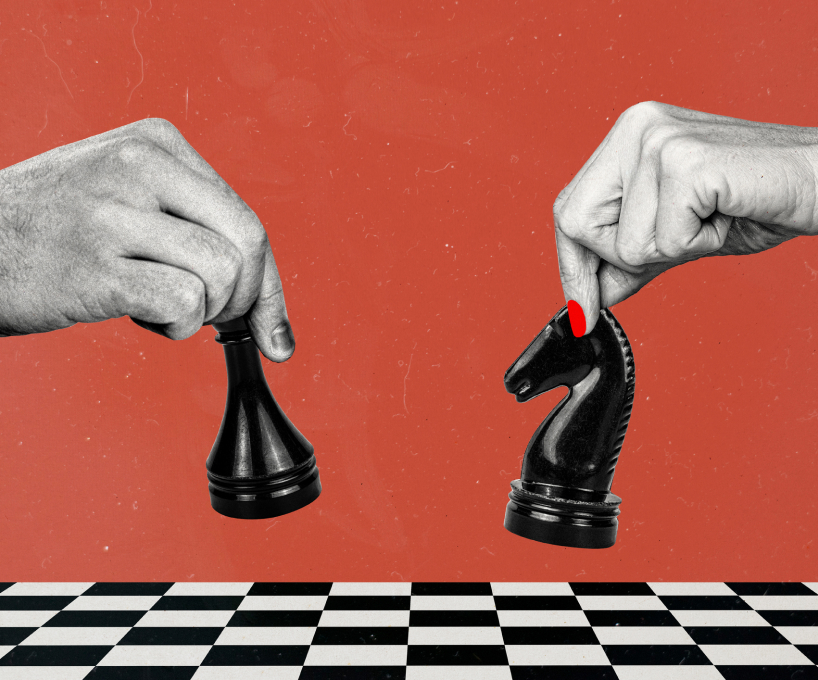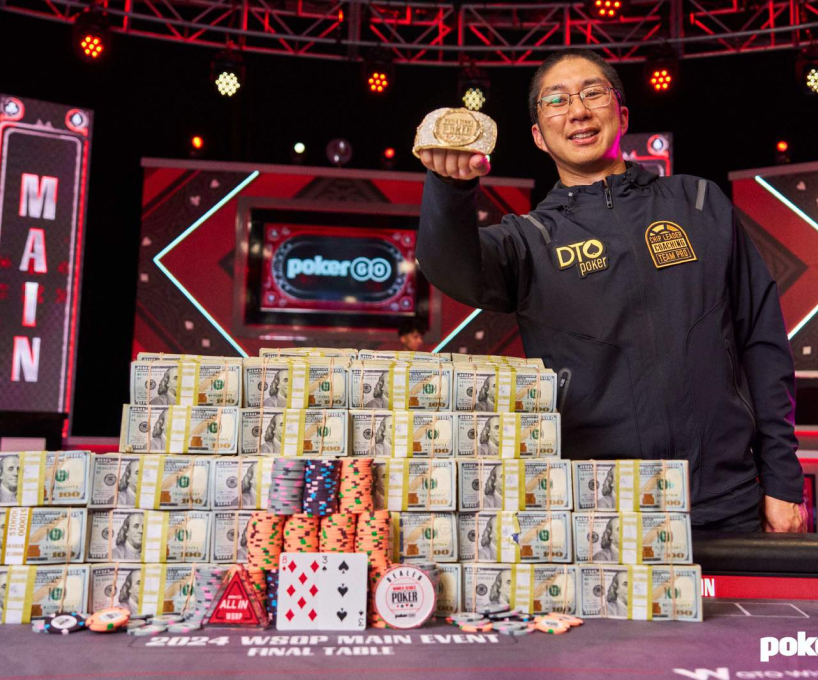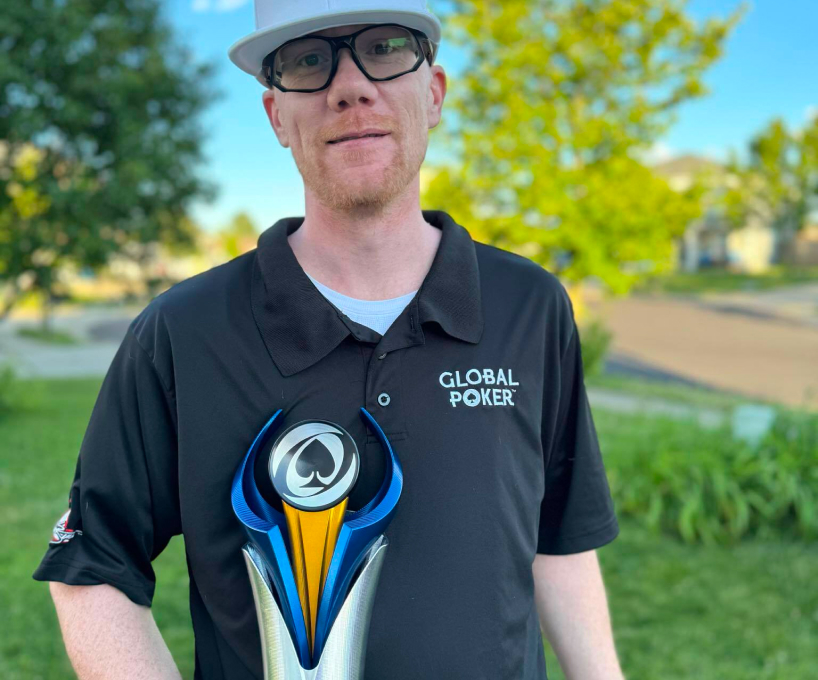
Poker Vs Chess: Which One’s The Real Test of Skill?
Poker's depth and complexity are a constant joy. But chess is an order of magnitude more complex.Players Lounge

Henry II: “I know.”
Eleanor of Aquitaine: “I know you know.”
Henry II: “You know I know.”
Eleanor of Aquitaine: “I know you know I know.”
Henry II: “We know Henry knows, and Henry knows we know it.”
Richard: “We are a knowledgeable family.”
—from The Lion in Winter (1968).
Poker is complex enough, but when you have a close poker relationship with your opponent in a hand, the levels of, “I know they know…” can become even more cumbersome.
I present here a hand played by my friend whom you know as “Yo-Yo Ma.” His difficulty in this particular situation was he played against his poker coach, who is also the site administrator of our hand history discussion group. I’ll refer to the administrator as “Benton,” because that’s his name.
The hand starts out well enough for Yo-Yo; he has two red aces. Our set is a 10/20 “unlimited hold-them” game, and Yo-Yo has an effective stack of 3,000 (150 big blinds).
Benton opens to 60 from the hijack seat. It folds to Yo-Yo on the button, who makes it a very reasonable 180. Folds back to Benton, who calls. There’s 390 in the pot going to the flop, and nothing unusual to report.
The flop is Jc-6s-8h. Unless Benton has flopped a set, Yo-Yo should be in great shape. Benton checks, Yo-Yo bets 155. So far, in a “normal” world, this sequence is as cut-and-dried as the flurry of moves that often take place at the opening of a chess game. Chess has standard openings that run 8-10 moves, and strong opponents often blitz through those moves quickly – it’s a pas de deux they’ve done hundreds of times—to get to the meat of the game.
This sequence is NLHE’s equivalent of the queen’s gambit: a player opens to 3x the big blind, a later position player 3-bets to 3x the original raise, and the first raiser calls. The flop is dry, the original raiser checks. This check is so standard now that it’s called “playing in flow.” The 3-bettor c-bets (“continuation bets”—another standard) 40% pot.
If somebody wrote a book on NLHE openings, this would be in the first chapter.
But nothing is normal in this world. Benton and Yo-Yo both know the opening choreography perfectly. And they further know that if one of them steps out of line early doors, the stakes are raised, and they’re both on somewhat unknown ground. They also discuss daily how to play various hands. They have each heard the other’s deepest thoughts about poker strategy and tactics.
I know you know.
Benton is a far more experienced and expert poker player than Yo-Yo – something Yo-Yo would be quick to acknowledge. If they wander off the garden path into terra incognito, Benton will be more at ease and in control than Yo-Yo. Something they both know.
Yo-Yo bets 155 into 390. Benton calls. If I were Yo-Yo, I’d be breathing a sigh of relief. So far so good. There are no obvious draws available. If Benton check/raises here, he’s announcing a strong value hand, most likely a set. And with the pot bloated by the preflop re-raise, the entire 3,000 chip stacks are very much in play.
There’s 700 in the pot, the turn is the Kc, making the board Jc-6s-8h—Kc. Benton “plays in flow,” and checks again. This is gut-check time for Yo-Yo. He knows “the villain” is a tough, creative professional. He also knows, for the last years, Benton has been driving home the point that turn check-raises are powerful, and almost always represent a hand that beats one pair. What if he bets and Benton check-raises? If he bets too small, Benton could take it as a sign of weakness and check-raise him big. Benton knows that Yo-Yo has taken the “Turn check/raises are strong” lesson to heart. Yo-Yo knows Benton knows this.
I know you know I know.
It would have been easy—perhaps defensible—to check back. “Pot control,” the vloggers would sagely voiceover. But as played, Yo-Yo says, “Pot control this,” and bets 480 (70% pot). When he described this in the hand history forum, I stood up and cheered. Benton is an excellent poker player, but he gets two cards just like everybody else. Here’s something both he and Yo-Yo understand: Yo-Yo can easily have pocket jacks and pocket kings, both of which would play exactly this way. Benton can’t blithely check/raise bluff for fear of running into the nuts, and they both know that.
I thought it was crucially important for Yo-Yo to bet because he can get value from so many hands now. All of Benton’s AK and KQ combinations, and perhaps his AJ and QJ combos. If Benton has KJs, well, he probably doesn’t. He knows that Yo-Yo isn’t 3-betting his own poker coach light, and KJs would be in dire straits against Yo-Yo’s 3-betting range.
We are a very knowledgeable family.
Yo-Yo is also protecting his equity against hands such as AcTc, Tc9c (now a 15-outer). I was particularly proud of this bet, especially against Benton.
And yet, Benton still called. I’m sure Yo-Yo was a bit nervous.
With 1660 in the pot, and 2185 remaining in the stacks, the river is the 7s, making the board Jc-6s-8h—Kc—7s. It occurred to me that had Benton chosen to just lead-blast all-in it would have put Yo-Yo to a very tough decision. Benton would be announcing, “Hey, my T9s—very likely Tc9c—just got there. And if you have a set of kings, that’s just fine—I’m beating that. I would like all your chips, please and thank you.”
But Benton checked.
Yo-Yo paused the playback, and said, “So if I’m going to bet, what am I trying to get value from?”
Here’s the problem: against most players, I’d say, “Every last king they got to the river with.” One of my maxims is that when I’m notching top pair (e.g. aces on a king-high board) I like to go for three streets of value. The poker population, as a whole, doesn’t like to fold top pair. And they know that if they call here, they get to see your hand. That’s a huge incentive to call.
But Benton is not the poker population as a whole. He’s a tough, savvy, disciplined professional. He’s not going to say (as we hear the vloggers say over and over), “Obviously I’m not folding top pair.”
I think that was Yo-Yo’s implicit point. “I can get value from Joe Random Hijack. But what worse does Benton call?” Also implicit in Yo-Yo’s question: “If I bet here, and he check/shoves on me, I’m going to be sick, because he’s representing the stone-cold nuts, that he could have actually gotten to the river.” I’d totally forgive him checking back.
But we all told him he should bet—half pot. That would offer Benton 3:1—he’d almost certainly fold his AJ hands, but could he fold AK or KQ? It was very easy for me to sit there in the safety of my office chair and say, “Yes Yo-Yo—half pot!” But maybe I’d have checked back.
Anyway, Yo-Yo checked back. His aces were very good.
Benton didn’t show, but he told us he had AK. Further, he told us he wasn’t calling a river bet, because he didn’t think there was a single chance Yo-Yo was betting worse than AK there, and he would be just hoping for a chop. Benton also said he felt Yo-Yo would be playing conservatively against him because of the master-student relationship—another factor that allowed him to feel he could safely fold AK to a third barrel.
Because Benton knew Yo-Yo knew Benton knew.
Lee Jones has been in the poker industry for over 30 years. He writes at the Global Poker blog, plays poker every chance he gets, and coaches poker. Has never been a professional poker player. You can contact him at www.leejones.com

Poker's depth and complexity are a constant joy. But chess is an order of magnitude more complex.Players Lounge

Poker has long been known for its cohort of impressive professionals , but there are a few who have faded into the background — here are a few of them!
Players Lounge

Explore the journey, triumphs, and strategies that led Craig "@ChipsMaxwell" S, to become the Global Poker x PokerNews Cup 2023 Sweeps Coin champion.
Players Lounge